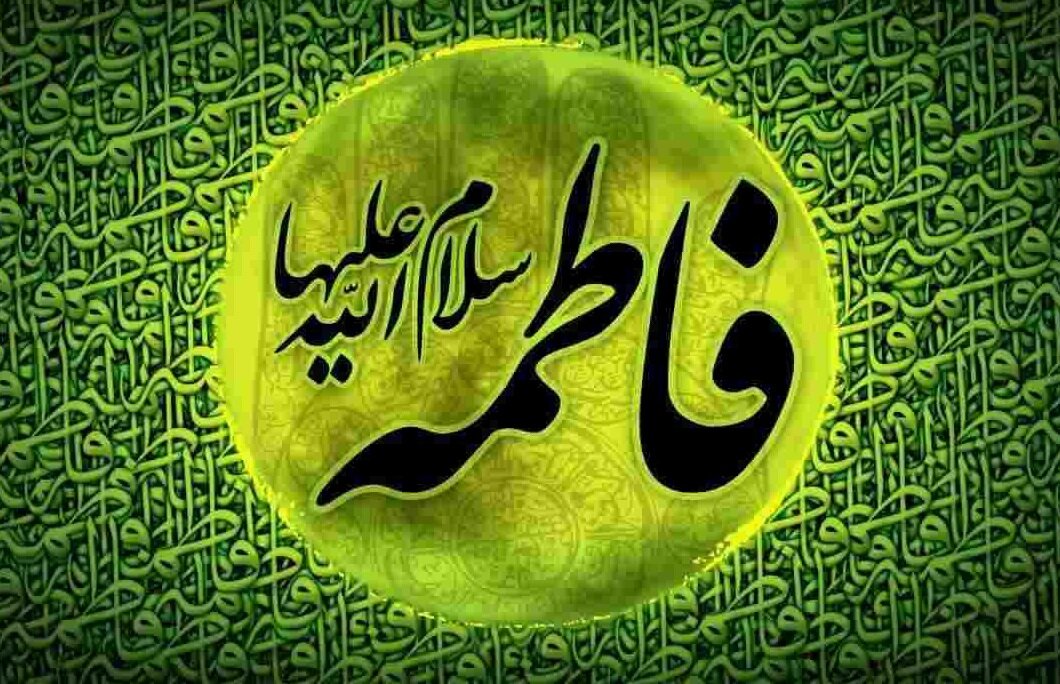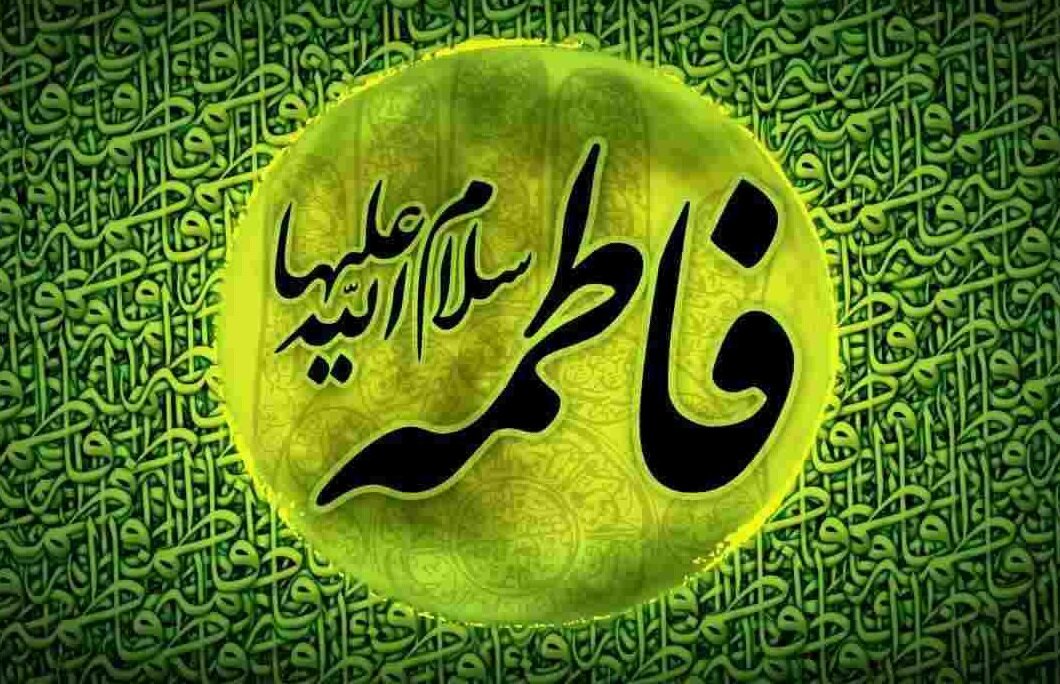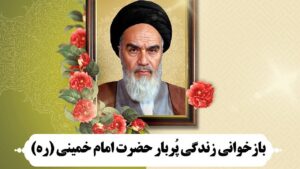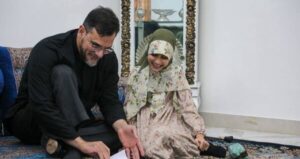
to report Missionary thought and culture baseIn order to answer the doubts of Wahhabism by referring to reliable sources of Sunnis, Hawsah Weekly has conducted a detailed interview with “Mohammed Jaafar Tabasi”, a researcher and professor of the field and university, and the following text is the result of this scientific interview.
* One of the questions raised during the Fatimid era is, how satisfied was Hazrat Siddiqa Kabri (may God bless him and grant him peace) with the performance of the first and second caliphs at the end of his blessed life?
This is a very precise question and it would be great if we could determine the extent of this satisfaction in the answer. This level of satisfaction has been determined by Bukhari, whose narration I will read and translate for you. What was the level of satisfaction of Hazrat Siddiqa Kabri and the only relic of the Holy Prophet (peace be upon him and his family and peace be upon him) among the first and second caliphs. Mr. Bukhari died in 256 and in the fifth volume of his Sahih, on page 82, he narrates a narration from Umm al-Mu’minin Aisha, the wife of the Holy Prophet (peace be upon him) that Fatima Zahra (peace be upon him) sent a person to Abu Bakr and inherited They demanded themselves.
Abu Bakr refused and said: I heard the Messenger of God (peace be upon him) saying: We prophets do not leave anything as our inheritance. The important thing is the statement of Bukhari who says: “Fabi Abu Bakr en-yedaf ili Fatima minha Shia” Abu Bakr refused to give any of the spoils of Khyber as well as Fadak to Hazrat Zahra (peace be upon her). “The death of Fatimah Ali Abi Bakr in this way is the most important thing in the film, even when she died.”
Ibn Manzoor is one of the original Sunni lexicographers. He says about the word “Wajd”: Wajd means anger. According to Bukhari’s narration, Hazrat Zahra (peace be upon him) became angry with the first caliph and stopped talking to him. “Even death”. Bukhari wrote: Fatimah Zahra (peace be upon her) lived for six months after her father, and according to Bukhari’s authentic narration, she did not speak to the first caliph for six months. Those who ask: How was Hazrat Zahra’s (peace be upon them) relationship with the first Caliph, this narration is very telling for their answer.
Those who ask whether Hazrat Fatima Zahra (peace be upon her) was satisfied with the actions of the first and second caliphs at the end of her blessed life, can read this narration by Bukhari. This narration does not need to be explained and it is very telling that there was no good relationship between the rulers of that time and Hazrat Fatima Zahra (peace be upon her). Also, from this narration, the level of satisfaction of Hazrat Fatima Zahra (peace be upon them) is also used.
The fact that Mr. Bukhari wrote: “Flam Taklame even death” or that he wrote: “Fahrajte”, according to these words, no satisfaction is used and these words report below zero satisfaction for us; Of course, I wonder how Mr. Bukhari narrated this narration. In the continuation of the narration, Bukhari said that “After the Prophet, may God bless him and grant him peace, he ate six months; This narration is a good proof and proof of the Prophet’s displeasure. Otherwise, why is the only relic of the Prophet (PBUH) buried at night? Why was it “at night” and not “at lunch”? This means that there is no good relationship.
Recently, Wahhabi networks have been discussing this issue a lot and saying: The relationship between the Prophet and the first Caliph was very good. In the event that this narration that says: “The burials of couples are in the night”, negates this issue, and more importantly, I am quoting this narration from an authentic Sunni source that says: “Walm Yuzan Baha Ababkar”; That is, they were buried at night and did not inform the first caliph. This issue is questionable for everyone.
* This question arises, why didn’t Amirul Momineen (peace be upon him) invite the first Caliph?
The answer to this question is not our responsibility; But Bukhari must answer. Bukhari died in 256 Hijri, that is, the third century, which was close to the era of incidents and events. There is another sentence in this narration which, in my opinion, is very important, and that is Amir al-Mu’minin himself? They prayed over the body of Fatima Zahra (peace be upon them).
Last year, some people told lies to the people during the Friday prayer, and clips were published by me refuting these issues. Why do you lie to people: “Peace be upon you Abab Bakr”; While Bukhari says: “Peace be upon him” and from the fact that this kind of lying is being done, it is clear that Abi Bakr’s blessing on Fatima Zahra (peace be upon them) is very important to them. From this narration of Bukhari, the issue of relations and the level of satisfaction of Hazrat Zahra (may God bless him and grant him peace) with the first caliph becomes clear.
* What was the level of satisfaction of Fatima Zahra (peace be upon her) with the second caliph?
Mr. Ibn Qutaiba, who died in 276 AH, which is also the third century, has a book called “Imamah and Politics”, in the second volume of the Egyptian edition of this book, on the ninth line of the 20th page, he reports the process of pledging allegiance, until he says: Umar said to Abu Bakr : Let’s go together to Fatimah’s house, to investigate that we have angered her.
Well, it is permissible for al-Aqra al-Aqla to confess themselves. Both of them asked for permission to enter Hazrat, but Hazrat did not allow it. Here the level of satisfaction becomes clear. Then he went to Amir al-Mu’minin Ali bin Abi Talib (peace be upon him) and they interceded for him to apologize to him at the end of Fatima’s life. In any case, they managed to reach Fatimah (peace be upon them) through the mediation of Amirul Momineen (peace be upon them). When his eyes fell on those two people, he said: Peace be upon them; The Holy Prophet (PBUH) turned his face towards the wall and these two people saluted the Prophet and the Prophet did not respond to their greetings.
Isn’t it obligatory to answer a believer’s greetings in the Holy Sharia? In the practical treatises, the scholars have written: If a person is in prayer and someone greets them, they should respond. I will not open this matter any more, why Hazrat Fatima Zahra (peace be upon her) did not answer the greetings of these two people. First, Abu Bakr started talking and addressed Hazrat Fatimah (peace be upon her). While they were facing the wall.
Hazrat Fatima Zahra (peace be upon her) said to those two people: “Nashdtakma Allah did not hear the Messenger of Allah (peace be upon him and his family and peace be upon him) saying: Fatima’s pleasure is my pleasure, and Fatima’s displeasure is my anger; So who loves Fatima Ibnati, loses my love, and who loves Fatima, loses love, and who hates Fatima, loses love? Qala: Yes, I heard it from the Messenger of God, may God bless him and grant him peace. She said: “For I am afraid of God and his angels, but I am angry and I am not satisfied, but the meeting of the Prophet is for me.” I swear to God! Did you not hear the Messenger of God (peace be upon him and his family) who said: Fatimah’s satisfaction is my satisfaction and her anger is my anger? Did you not hear from my father that whoever made Fatima angry, made me angry? Both of them said: Yes, we have heard these things from the Prophet.
When these two people received this confession, he said: I testify to God and the divine angels that you two have angered me and have not satisfied me. This narration is quite detailed and I will not narrate it all. However, these two people did not have an answer for Hazrat Fatima (peace be upon her). When the Prophet received a confession from them, he turned to the caliph first and said: “By God, call to God for all the original prayers”; By God! From now on, I will curse you after every prayer. It is enough to read the same texts to the people during the Fatimid era and not even judge ourselves; Rather, we leave the judgment to the listeners and readers so that they can judge for themselves, so that they know, after the death of the Holy Prophet (peace be upon him and his family and peace be upon him), what sufferings of the rulers of the time befell his only memory.
If we read these hadiths from enough proverbs, they would excommunicate us; While we read the narration from “Imamah and Politics” by Ibn Qutaiba Dinuri. Anyway, by using these two texts, we can get the level of satisfaction of Hazrat Fatima Zahra (peace be upon her) with the first and second caliphs.
* Another question that is very popular in Wahhabi social networks today is whether Shia can provide a reliable source about the story of the incitement of the House of Fatima Zahra (peace be upon her). In other words, can Shia provide evidence from Sunni sources that even the house of Fatima Zahra (peace be upon her) was raided? That is, they deny the matter from the beginning and say: there was no such thing, and if it was claimed, it was in the Shiite sources, and there is no such thing as an attack on the house of revelation in the Sunni sources. How about saying that the house of Fatima Zahra (Peace be upon her) has been set on fire and they consider these matters to be falsified by the Shiites and fed to the Shiites?
Our answer is that after the death of the Holy Prophet (peace be upon him and his family and peace be upon him), two tragic incidents definitely happened. The first is the attack on Wahi’s house and the second is the burning of Fatima Zahra’s house. Some may say, why do you speak with such certainty? What is your source and evidence for this claim?
Attack on the house of Fatima Zahra (peace be upon her) according to Sunni sources
Regarding the attack on the house of Fatima Zahra (peace be upon her), I present several sources: first, Hamid Ibn Abdullah Khorasani known as Ibn Zanjuyeh in the book “Al-Amwal”, Ibn Qutaiba in the book “Imamah and Politics”, Tabari in his history, Ibn Abd Rabbah in the book “Al-Aqd al-Farid” , Tabarani in “Al-Maajm al-Kabir”, Dhahabi in “Tarikh al-Islam”, these are the first-hand sources of Ahl al-Sunnat, who all tell this story that now Your Excellency, I will quote, they have quoted; But allow me to narrate the story of the attack on the house of Fatima Zahra (peace be upon her) from the book “Al-Amwal” by Ibn Zanjuyeh, who died in 247, in the first volume, page 387, I narrate the story, and then I narrate the position of Rafi Ibn Zanjuyeh among Sunnis. Abd al-Rahman bin Auf says: I visited Abu Bakr when he was ill, and after greeting him, Abu Bakr said: I regret only three things that I have done in my life, and I would have liked to, I would not have done them at all; One of those three things is the invasion of Fatimah’s house.
I liked that I did not desecrate his house. Now we ask, is the story of the attack on Wahi’s house narrated by Shias or Sunnis? Why do you do injustice and do not practice divine piety? But who is Ibn Zanjuyeh? Dhahabi has a book called “Sir “Alam al-Nabla” and on page 19, when he comes to Ibn Zanjuwayh, he says in his praise: “Al-Imam, al-Hafiz, al-Kabir…” Sunnis do not call anyone Hafez; Rather, they say: We call the person who has memorized a hundred thousand narrations a Hafiz. When Al-Nasa’i reaches Ibn Zanjuyeh, he says: “Thaqqa” means he is a trustworthy scholar; Imam, Hafiz, Kabir and Shiqah Ahl-e-Sunnat, report for us the story of the attack on the house of Siddiqa Kabiri (peace be upon them).
The burning of Fatima Zahra’s house (peace be upon them) according to Sunni sources
But about setting fire to the house of Hazrat Zahra (peace be upon her), it should be said: this matter is found in many Sunni sources, and my attempt to express this matter is brief, and only the name of one book, “Al-Imamah and Policy” by Ibn Qutaiba Dinuri, who died in 276 I will take In the first volume of the Egyptian edition, on page 19, he says: “And Abab Bakr, may God be pleased with him, inspected the people who violated the pledge of allegiance to Ali, the face of Allah, so he sent Umar to them, he cried out to them, and they were in Ali’s house, so if they went out, he prayed with firewood and said: Give the life of Umar to them.” Latharjan or Laharkhanha Ali Man Fiha, Faqeel Leh or Abahfs. Is this Fatima? And he said: Abu Bakr saw that some people had violated their pledge of allegiance to him, so he sent Umar to them – the subject in the above sentence is undoubtedly the second caliph – he called them to leave the house to pledge allegiance; But they did not leave.
So what did the second caliph do? Did he leave them? “Fidah al-Hatb” is the Arab word for firewood. “Vaqal: Waldhi Nafs Omar Bideh”; I swear by the one who has the life of life in his hand, “Latharjan or laharkhanha ali man fiha” either you come out of the house to pledge allegiance or I will burn the house with its people.
Do you attribute the case of arson to Shia? He says: Either you come out of the house and pledge allegiance to the first caliph, or I will set the house on fire with the person who is in the house. “Faqil Leh or Abahfs.” Is this Fatima?” They told Omar: Fatima is in this house. He said: Be it. This house that they report burning is the same house that the ruler of Nishaburi Shafi’i sect who died in 405 AH, in his book called Al-Mustadrak Ali Al-Sahiheen Volume 3, narrates a narration that Anas says: I was in Madinah for six months, the Holy Prophet was in the house during the morning prayer. Ali and Fatima would come and stand and recite the verse of purification: “Inma Yeridallah Lizahb Ankum al-Rajj Ahl al-Bayt and purifying me in purification.” How long did it take from the death of the Prophet (peace be upon him) to the attack on the house of Fatima (peace be upon him)? Did such a house deserve to be burned after the Holy Prophet (PBUH)? The answer to this question should be given by those who set this house on fire.
* Another question that is often raised today is whether the dispute between Fatima Zahra (peace be upon her) and the claimants of the caliphate was over the issue of inheritance? Or was this issue an excuse for Hazrat Zahra (peace be upon her) to protest and confront a deviant trend?
In my opinion, this question is also a central and scientific question that we will discuss a little about in this short opportunity to see if the issue of Fadak was so important to Fatima Zahra (peace be upon her) that because of it she moved to Masjid al-Nabi. (Peace be upon him and his family and peace be upon him) come and read that sermon? Someone who does not know much about history may say something like this; But I would like to say that the issue of inheritance and the issue of Fadaki mentioned by Bukhari is a deviant issue.
Why is it deviant? Because the case has nothing to do with inheritance. Why call it inheritance; As Bukhari has said and raised the narrative of inheritance? Except when the verse]and the nearness is true[ (اسرا/۲۶) نازل شد که جناب سیوطی شافعیمذهب متوفای ۹۱۱ در تفسیرش الدّرّالمنثور جلد پنجم صفحه ۲۳۸، از صحابی پیامبر(صلی الیه علیه و آله و سلم) بهنام ابوسعید خدری روایت نقل نکرده که وقتی این آیه بر پیامبر اکرم(صلی الیه علیه و آله و سلم) نازل شد، «دعی رسولالله(صلی الیه علیه و آله و سلم) فاطمة (سلام الله علیها) فأعطاها فدک». آیه نازل شد و پیامبر اکرم(صلی الیه علیه و آله و سلم)، فاطمه(سلام الله علیها) را احضار کرده و قباله فدک را به ایشان دادند؛ بنابراین فدک در زمان پیامبر اکرم(صلی الیه علیه و آله و سلم) ملک مطلق فاطمه زهرا(سلام الله علیها) شده است.
روی چه اساسی، بخاری، حدیثی انحرافی را در کتابش داخل کرده است؟ و روی چه حسابی فاطمه زهرا(سلام الله علیها) بحث ارث را مطرح کردهاند؟ ایشان از ابتدا از باب ارث وارد نشدند. وقتی دیدند، خلیفه اول زیر بار نمیرود و بعد از رحلت پدرشان، از باب ارث وارد شدند. متأسفانه این مسائل برای جامعه امروز بیان و تبیین نمیشود؛ چراکه مسئله ارث مطرح نبوده است؛ بلکه فدک جزء اموال حضرت زهرا(سلام الله علیها) بوده و آن را غصب کرده بودند. وقتی حضرت صدیقه شهیده(سلام الله علیها)، از خلیفه، فدک را درخواست میکنند، خلیفه در پاسخ ایشان به روایتی استناد کرد که راوی آن، فقط خود خلیفه است که گفت: من از پیامبر اکرم(صلی الیه علیه و آله و سلم) شنیدم که «نحن معاشرالانبیاء لانورث»، یا للعجب! مسئله به این مهمی را پیامبر(صلی الیه علیه و آله و سلم) فقط به یک نفر گفتهاند؟ آیا این باورکردنی است؟ اینکه ما پیامبران ارث بهجا نمیگذاریم، بر خلاف قرآن است که میفرماید: ]And the heir of Solomon David[ (نمل/ ۱۶)، فاطمه زهرا(سلام الله علیها) در خطبه فدکیه – که در کتاب «بلاغات النساء» احمدبن ابیطاهر طیفور متوفای ۲۸۰ هم آمده است – به این آیه تمسک میکنند؛ یعنی حضرت میخواستند، آیات ارث را احیاء کنند و بهعبارت دقیقتر و رساتر خلیفه میخواست، بدعتی را در دین ایجاد کند و حضرت زهرا(سلام الله علیها) در برابر او ایستادگی کردند و اجازه ندادند؛ بنابراین مسئله اینجا مسئله باغ و درخت نبوده است؛ بلکه اینها ظواهر امر است و حقایق مطالبی است که عرض میکنم.
حضرت زهرا(سلام الله علیها) میخواستند، در برابر بدعت بایستند و ایستادند. جملهای که دل هر انسان آزادهای را به درد میآورد، این است که حضرت زهرا خطبه خودشان را خواندند و خلیفه اول را محکوم کردند؛ اما یک نفر در مسجدالنبی(صلی الیه علیه و آله و سلم) بلند نشد، به خلیفه اول اعتراض کند؛ حتی یک نفر این کار را نکرد و در هیچ جای تاریخ نداریم که یک نفر به خلیفه اول اعتراض کرده باشد که چرا پاسخ فاطمه زهرا(سلام الله علیها) را بهدرستی نمیدهی؟ و این وضعیت مردمان زمان خلیفه اول است که اینطور در مقابل از بین بردن حق و حقیقت سکوت میکردند.
* سؤال دیگری که در ایام فاطمیه کمتر مطرح میشود، این است که روایات فاطمه زهرا(سلام الله علیها) کجاست؟ چرا از فاطمهای که همیشه در خانه رسولالله(صلی الیه علیه و آله و سلم) بوده و پدری که بهطور دائم در خانه دخترش بوده، تنها یک حدیث از ایشان نقل میشود؟
ذهبی در «سیر اعلام النبلاء» جلد دوم چاپ جدید صفحه ۱۳ میگوید: مجموع روایاتی که از فاطمه زهرا(سلام الله علیها) نقل شده، ۱۸روایت است و از این هجده روایت، فقط یک روایت متفقعلیه است. ایشان چند صفحه بعد، به ترجمه عایشه همسر پیامبر(صلی الیه علیه و آله و سلم) میرسد که میگوید: ۲۲۱۰ حدیث از او نقل شده است و میگوید: فقط بخاری و مسلم از او ۴۷۰ حدیث نقل کردهاند. مطلب بالاتر اینکه احمدبن حنبل که او را پیشوای اهل حدیث میدانند و متوفای ۲۴۱ و صاحب کتاب مسند و رئیس مذهب حنفی است، گمان میکنید، ایشان در کتاب قطور المسند خودش، چند روایت از فاطمه زهرا(سلام الله علیها) نقل کرده است؟
ایشان ده حدیث از فاطمه زهرا(سلام الله علیها) نقل کرده که این ده حدیث را بارها از اول تا آخر مطالعه کردم و دیدم، از این ده حدیث، پنج حدیث هیچ ربطی به فاطمه زهرا(سلام الله علیها) ندارد و پنج حدیث باقی میماند. از این پنج حدیث، سه حدیث مکرر است و تنها دو روایت از ایشان نقل میکند. عجیب این است که از فاطمه زهرا(سلام الله علیها) دو حدیث از پیامبر(صلی الیه علیه و آله و سلم) نقل میکند؛ اما همین آقای احمدبن حنبل، وقتی به برخی همسران پیامبر میرسد، میگوید: ۲۲۱۰ حدیث از او نقل شده است. این چه نسبتی است؟ نسبت ۱۸ با ۲۲۱۰ چیست؟ آیا یک دهم است یا یک صدم است یا نسبت دیگری است؟
آیا احمدبن حنبل که پیشوای اهل حدیث است، به این مسئله فکر نمیکند؟ احمدبن حنبل وقتی به عبداللهبن عمر میرسد، میگوید: از او ۲۶۳۰ حدیث نقل شده است. ذهبی وقتی به ابوهریره میرسد، میگوید: ۵۳۷۴ حدیث از او نقل شده است. مگر ابوهریره در چه سالی اسلام آورده است؟ برخی میگویند: او در سال هشتم هجری و برخی میگویند: او در سال نهم هجری اسلام آورده است. پیامبر اکرم(صلی الیه علیه و آله و سلم) در سال دهم هجری از دنیا رفتند؛ یعنی ابوهریره حداکثر دو سال محضر پیامبر(صلی الیه علیه و آله و سلم) را درک کرده و اگر تمام اوقات روز را در خدمت پیامبر اکرم(صلی الیه علیه و آله و سلم) بوده باشد، نمیتوانسته این همه حدیث را از پیامبر اکرم(صلی الیه علیه و آله و سلم) نقل کرده باشد.
استادم مرحوم آیتاللهالعظمی فاضل لنکرانی(ره) وقتی در درس خصوصی به من فرمودند: فلانی من دوست دارم، فاطمیه مانند محرم بشود. فلانی کسی خیال نکند، مظلومیت فاطمه(سلام الله علیها) به این است که قبرش مخفی است. این مطلب جای خودش را دارد؛ ولی مظلومیت فاطمه به این است که روایات ایشان را مخفی کردهاند. ما چند روایت از فاطمه زهرا(سلام الله علیها) در اختیار داریم؟ این مسائل برای مردم تبیین نشده و مردم مظلومیت حضرت زهرا(سلام الله علیها) را در چند مسئله خلاصه کردهاند؛ اما این مسائل مظلومیت حضرت زهرا(سلام الله علیها)ست که باید برای مردم تبیین بشود.
سخن آخر
حوزههایعلمیه بهمناسبت ایام شهادت فاطمه زهرا(سلام الله علیها) تعطیل است. این حرکتی بسیار بهجا و خداپسندانه است؛ بهشرطی که ما تنها به تعطیلی حوزه اکتفا نکنیم. بهترین فرصت برای ما سربازان امام زمان(عجل الله تعالی فرجه الشریف) این است که از این تعطیلی استفاده کنیم و مظلومیتهای سیده زنان عالم را برای عالم تبیین کنیم. الآن فرصتی پیش آمده که در سخنرانیها و سخنانمان به چند محور اشاره کنیم. اولین محور اینکه فاطمه(سلام الله علیها) را به قرآن گره بزنیم.
چند سال قبل در یکی از شبکههای تلویزیونی برنامهای تحت عنوان «الزهراء(سلام الله علیها) فیالقرآن» نزدیک به چهل جلسه به زبان عربی، فاطمه(سلام الله علیها) در قرآن را تبیین کردم. این بحث بسیار مهمی است. آیه تطهیر را داریم، آیه مباهله را داریم که همه نوشتهاند: نسائنا یک نفر است و آن هم فاطمه زهرا(سلام الله علیها) است. آیه ذویالقربی را داریم. دیگر آیات نیز هستند. چرا فاطمه(سلام الله علیها) را از دیدگاه قرآن برای مردم معرفی نکنیم؟ همچنین فاطمه(سلام الله علیها) از دیدگاه پیامبر(صلی الیه علیه و آله و سلم)، تنها کافی است، ما روایاتی را که اهلسنت در کتبشان از زبان نبی مکرم اسلام(صلی الیه علیه و آله و سلم) در رابطه با شأن و مقام و منزلت حضرت فاطمه زهرا(سلام الله علیها) نقل کردهاند و آن، «المستدرک علی الصحیحین» است. روایات این کتاب را برای مردم تبیین کنیم. از میان همه این روایات، تنها به یک روایت اشاره میکنم که همین یک روایت چند جلسه تبیین نیاز دارد.
حاکم نیشابوری این روایت را نقل میکند و در ادامه این روایت را صحیحه میداند و میگوید: «قال رسولالله(صلی الیه علیه و آله و سلم) تبعث الأنبیاء یومالقیامة علیالدواب لیوافوا بالمؤمنین من قومهم المحشر ویبعث صالح علی ناقته وابعث علی البراق خطوها عند أقصی طرفها وتبعث فاطمة أمامی» من که هنوز نتوانستهام، این حدیث را هضم کنم و معنی آن را بدانم. حاکم نیشابوری این روایت را نقل کرده است. آیا او دقت کرده است، فقهالحدیث و معنای این روایت چیست؟ روایةالرّوایة مهم نیست؛ بلکه درایةالرّوایة و فهمالرّوایة و فقهالحدیث مهم است. اینکه میگوید: «وتبعث فاطمة أمامی» به چه معنی است؟ میگوید: روز قیامت فاطمه(سلام الله علیها) پیشاپیش من وارد عرصه قیامت میشود؛ أین الأنبیاء؟ أین الأوصیاء؟ أین الصّلحاء؟ ما ۱۲۴ هزار پیامبر و دوازده امام داریم. این چه مقامی است که برای فاطمه زهرا(سلام الله علیها) بیان میشود و حاکم میگوید: این روایت درست است؟ بنده از سروران عزیزم در خبرگزاری افق حوزه تشکر میکنم که این فرصت را در اختیار بنده حقیر قرار دادند تا چند موضوع را در رابطه با فاطمه زهرا(سلام الله علیها) عرض کنم و برای همه شما آرزوی موفقیت میکنم.
منبع: www.khabaronline.ir








